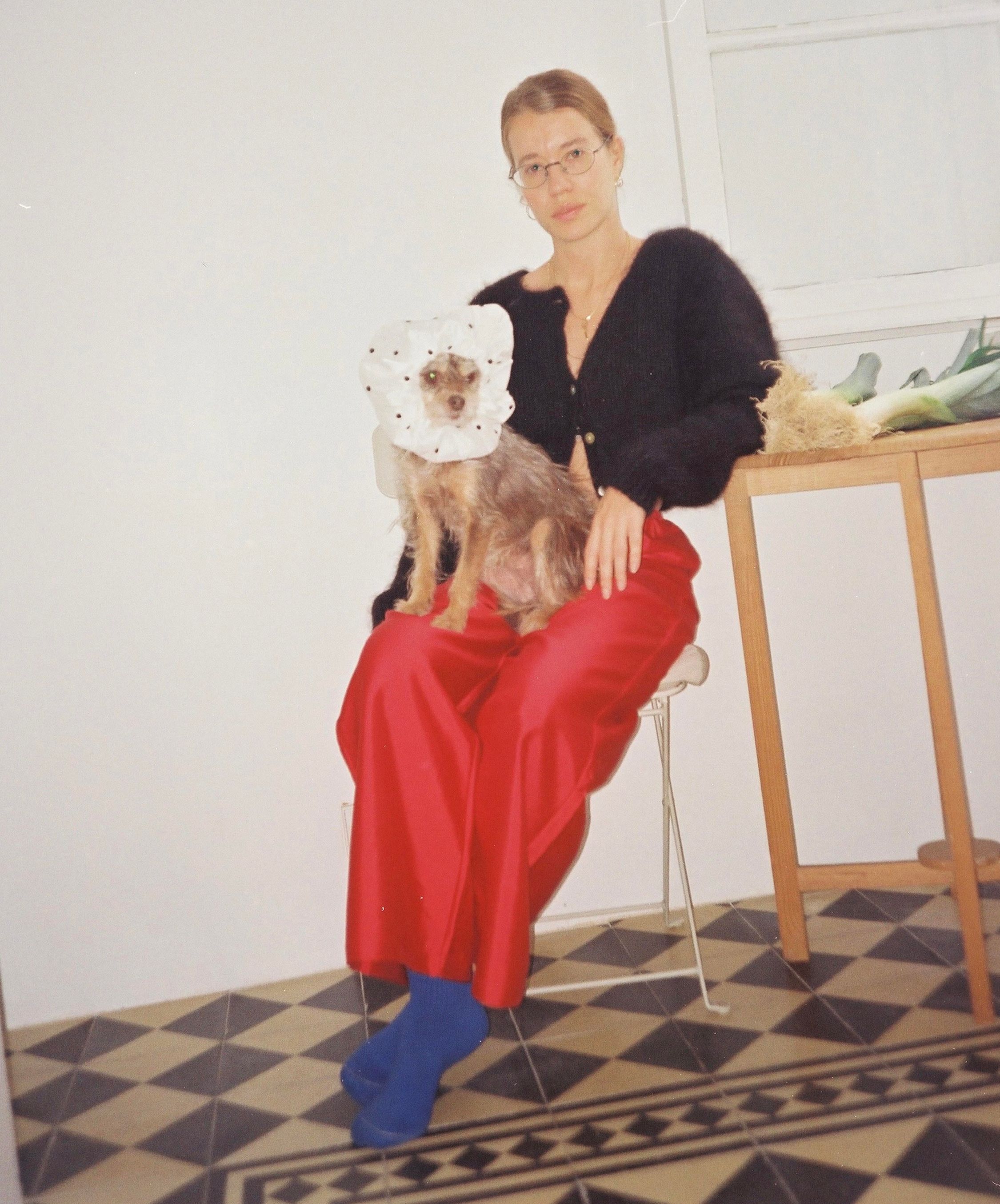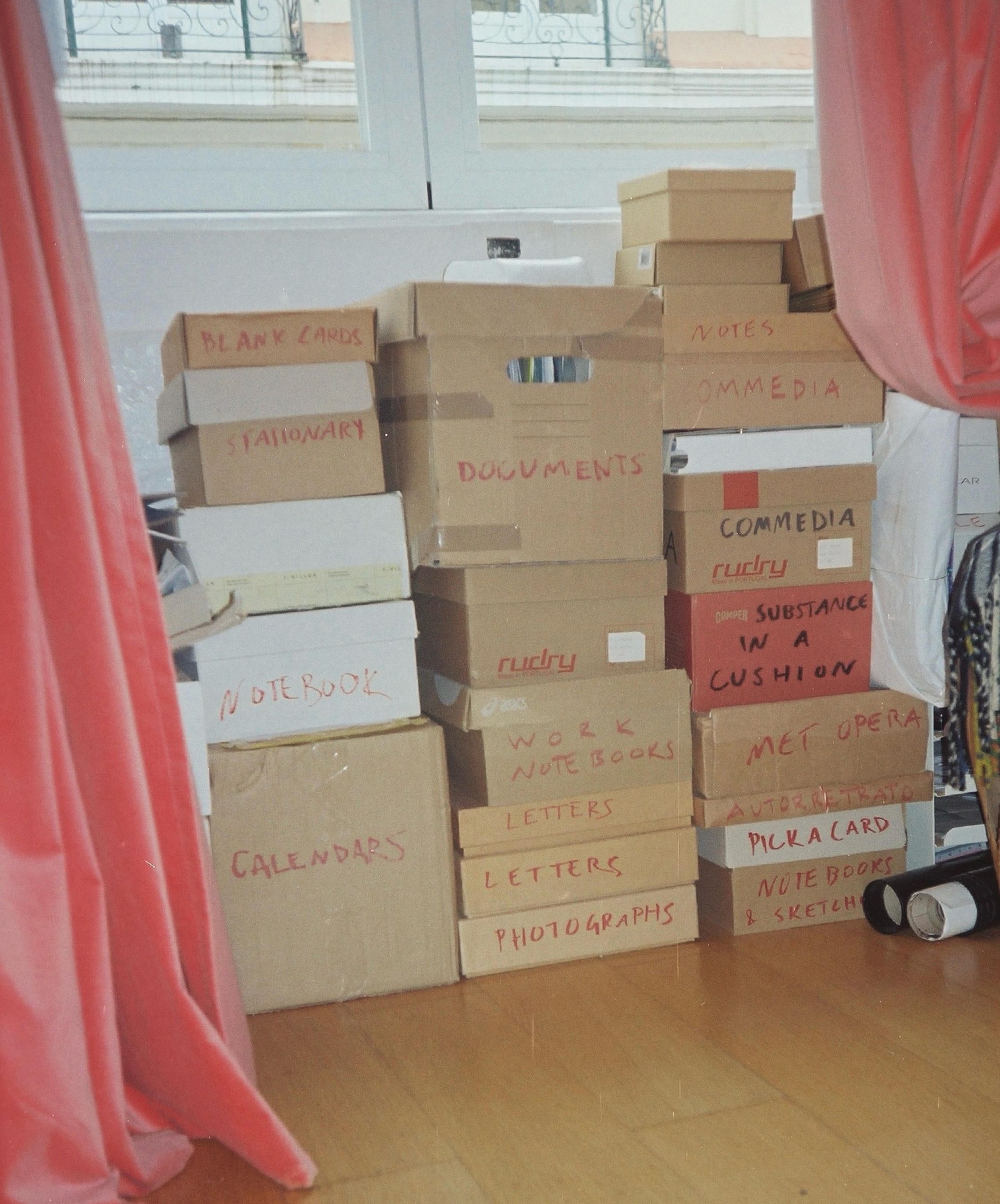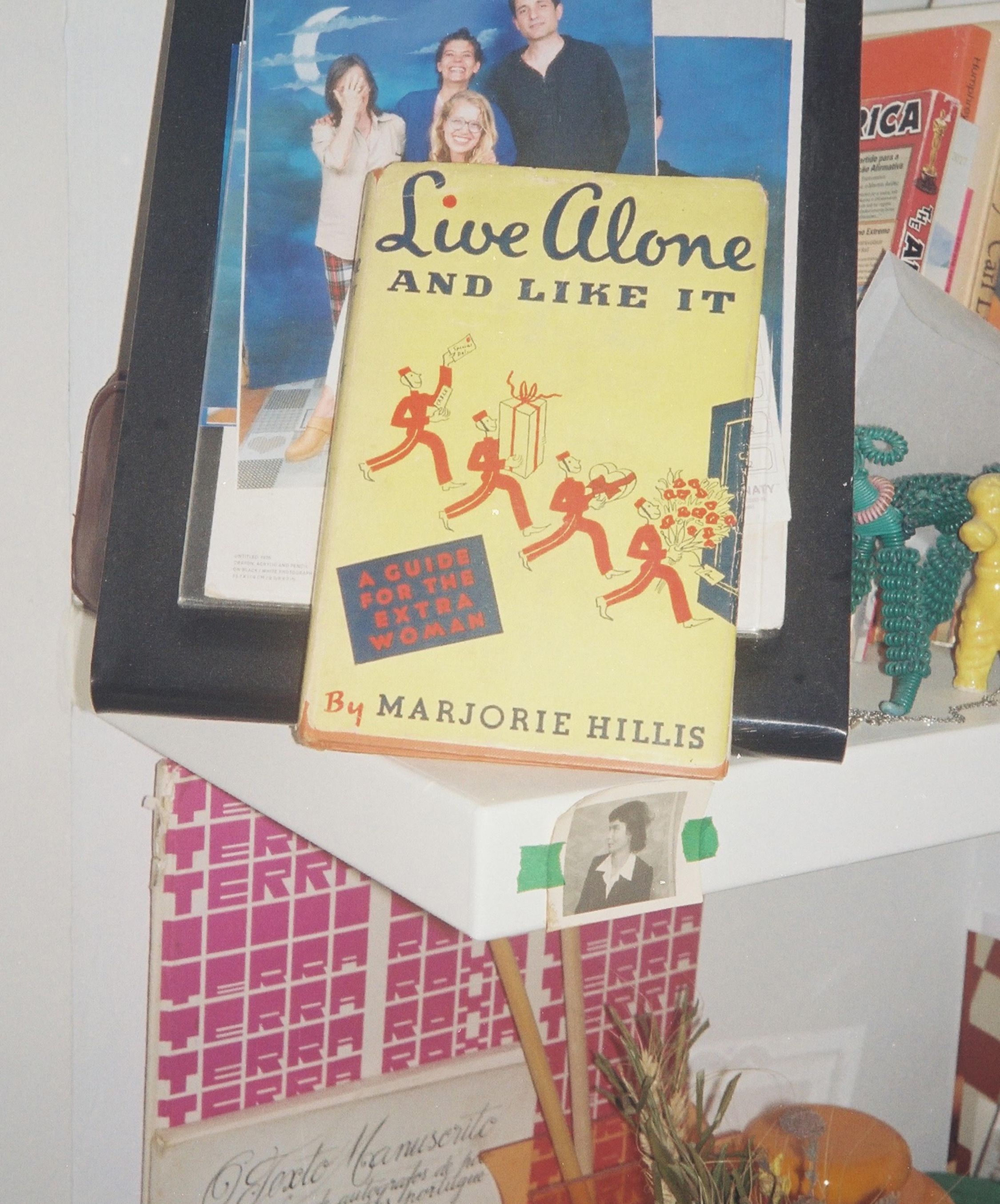Isa Toledo
Meet Isa Toledo, a Brazilian artist whose practice spans multiple disciplines, including writing, dubbing, design, and embroidery. Currently based in Lisbon, she explores themes of home, memory, craftsmanship, and gentrification, blending humour with introspection. In her journal, she reflects on her creative journey, sharing insights alongside her own photographs.

Did you have a creative childhood?
I was a serial daydreamer and an inveterate copycat, so yes.
When did you realise you wanted to be an artist?
At 30, about 15 years after I decided I wanted to make art. I worked on all kinds of projects until the artist label was the only one that fit.
Tell us about your creative process.
I start about five projects at once - one video, one painting, one writing, etc - then avoid each by working on another.

What’s the best part of working on a project?
Daydreaming about it.
What’s the worst part of working on a project?
The moment reality first meets the daydream.
What project are you proudest of, to date?
I’m proud of everything I’ve completed and shared—and even prouder if I get paid for it. The more it gets shared (or the more I get paid) the prouder I am.

When do you know that it’s time to give up on something that you’re working on?
About a week after the deadline. If there’s no deadline, I haven’t given up…
If you weren’t an artist what would you be?
In a dream world where I could pick a talent, I’d be a musical theatre composer. In this world, with a talent for gossip, I’d be a psychoanalyst.

Your work currently appears to be deeply influenced by specific trades and crafts, particularly in Lisbon. What is it about this that resonates with you?
I like repetitive, rote handiwork, it relaxes me. I enjoy improving at things, seeing how they work, starting off broadly and becoming particular. What’s in Lisbon is also what’s at hand, seeing as I live here, and there’s still so much here that is done manually.
Do you feel creatively satisfied?
I do—right up until I don’t. But then again, I do.

Did you have a creative childhood?
I was a serial daydreamer and an inveterate copycat, so yes.
When did you realise you wanted to be an artist?
At 30, about 15 years after I decided I wanted to make art. I worked on all kinds of projects until the artist label was the only one that fit.
Tell us about your creative process.
I start about five projects at once - one video, one painting, one writing, etc - then avoid each by working on another.

What’s the best part of working on a project?
Daydreaming about it.
What’s the worst part of working on a project?
The moment reality first meets the daydream.
What project are you proudest of, to date?
I’m proud of everything I’ve completed and shared—and even prouder if I get paid for it. The more it gets shared (or the more I get paid) the prouder I am.

When do you know that it’s time to give up on something that you’re working on?
About a week after the deadline. If there’s no deadline, I haven’t given up…
If you weren’t an artist what would you be?
In a dream world where I could pick a talent, I’d be a musical theatre composer. In this world, with a talent for gossip, I’d be a psychoanalyst.

Your work currently appears to be deeply influenced by specific trades and crafts, particularly in Lisbon. What is it about this that resonates with you?
I like repetitive, rote handiwork, it relaxes me. I enjoy improving at things, seeing how they work, starting off broadly and becoming particular. What’s in Lisbon is also what’s at hand, seeing as I live here, and there’s still so much here that is done manually.
Do you feel creatively satisfied?
I do—right up until I don’t. But then again, I do.